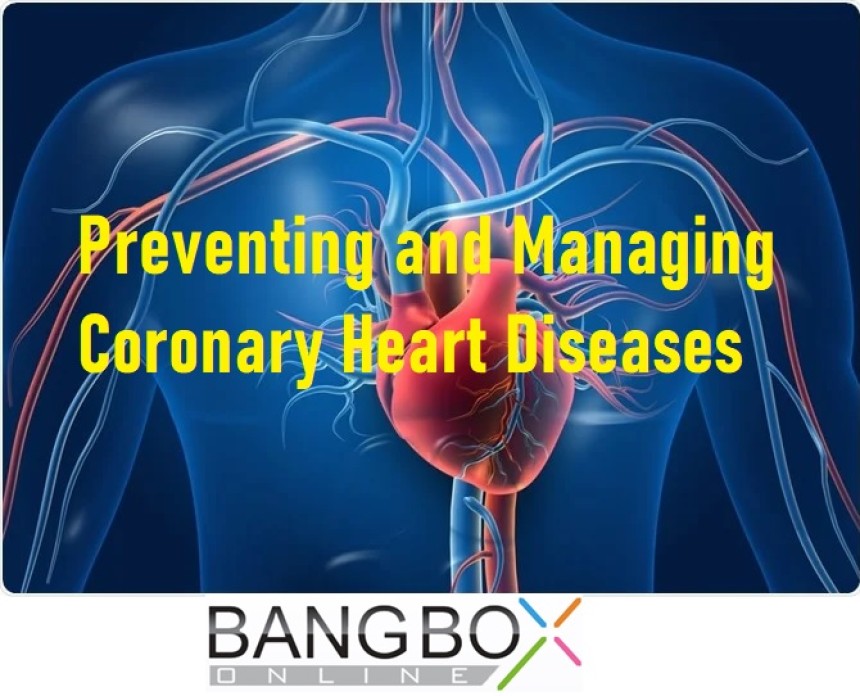
Preventing and Managing Coronary Heart Diseases
The heart is a vital organ that pumps blood throughout the body, supplying it with oxygen and nutrients. It malfunctions due to various reasons commonly called Coronary artery disease (CAD). The CAD can be managed through lifestyle changes and medications. This write-up aims to provide guidance on how to prevent bad heart conditions and how to manage them effectively if one already is suffering from.
Preventing and Managing Coronary Heart Diseases
I developed a heart condition just before turning 40, but fortunately, I survived. As an Ischemic Heart Disease (IHD) patient, I not only studied the condition extensively but also consulted various doctors and psychologists to write an article that could benefit others. This write-up aims to provide guidance on how to prevent heart conditions and how to manage them effectively if you already have one.
Changing Trends in Heart Health
In the past, heart attacks and cardiac arrests were predominantly observed in individuals over the age of 65. However, today, these events are alarmingly common among younger people, making cardiac arrest the leading cause of death worldwide.
The Importance of Lifestyle
Ultimately, your lifestyle plays a crucial role in heart health. To keep this discussion concise, I will focus on preventive measures, curative options (including medication and natural remedies), and adopting a healthy lifestyle. Here are some guidelines for avoiding or managing a heart condition:
Cardiac Assessment
Cardiac arrest can occur suddenly and without warning. Therefore, it is essential to plan a voluntary cardiac assessment, especially for those over 40. Start with a lipid profile, ECG and exercise tolerance test (ETT). If necessary, your doctor may recommend further tests such as a Thallium Scan, CT Angiogram, or Coronary Angiogram.
Family History
Individuals with a strong family history of IHD, coronary artery disease (CAD), or diabetes are at higher risk. Regular medical check-ups are vital for these individuals to monitor their heart health.
Managing Stress, Depression and Anxiety
These factors significantly contribute to the development of various diseases. While some believe that managing emotions is beyond one’s control, that is not entirely true. Here are some strategies to consider:
- Regular exercise (aerobics, cardio, yoga, brisk walking)
- Deep breathing exercises
- Taking rest or power naps
- Going for long drives
- Traveling to new places
- Reading and writing
- Cooking
- Meditation
- Socialising and staying connected with friends
- Taking breaks to spend time with family
- Embracing minimalism
- Volunteering for social causes
- Exchanging smiles while offering space to elderly or pregnant women in queues, sitting areas, or traffic jams.
- Acknowledging and praising good work
- Practicing forgiveness
- Cultivating empathy
- Managing expectations of others
- Admitting faults and apologising
- Engaging in hobbies like gardening
- Learning new skills
- Limiting screen time
Eating Healthy
Aim for a balanced diet rather than eliminating foods entirely. Limit bakery items, sugary snacks, processed foods and artificial juices. Reduce carbohydrates and saturated fats while increasing your intake of organic and raw foods. Incorporate more fruits, vegetables and fish into your diet and choose extra virgin olive oil, mustard oil, or organic (desi) ghee over refined oils.
Quit Smoking
Regardless of the form; cigarettes, e-cigarettes, or vapes; smoking is hazardous, not only to the smoker but also to those around them. Quitting is essential for heart health.
Manage Weight
Maintaining a healthy weight according to your Body Mass Index (BMI) is crucial for preventing diabetes, high blood pressure and heart conditions.
Medication
If your doctor prescribes statins or aspirin, it is important to take them, even if you do not have a heart condition. Consider natural remedies, but never substitute them for prescribed medications. A popular natural remedy for lipid control is a mixture of lemon juice, ginger juice, apple cider vinegar and honey.
Prioritise Sleep
Adequate sleep is vital for overall health, yet it is often overlooked. Aim for at least 8 hours of quality sleep each night to help your body, brain and heart repair and recharge.
Conclusion
In conclusion, I want to emphasise the urgent need for cardiac assessments for individuals over 40. Identifying potential issues early may not only prevent damage to the heart but also significantly reduce the risk of death from sudden cardiac arrest. There is much more to explore on this topic, but I hope this summary has captured your interest. If you have questions or would like to reach out, feel free to email me.
cafedostea2@gmail.com
✍️: Lt Col Abrar Khan (Retd)




